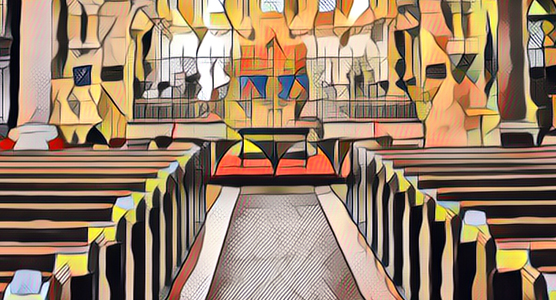New Hampshire judge upholds ban on gatherings, dismisses religious liberty complaint

Like everyone else, houses of worship and religious organizations are dealing with the call to limit gatherings in light of the spread of the coronavirus. Many churches are holding services online. I even saw one in Tennessee holding a drive-in service in a parking lot.
Because of the special protections in place under federal and state law for religious free exercise, some states are choosing to exempt religious services from orders forbidding gatherings.
In Michigan, for example, a ban on assemblages of more than 50 people applies to houses of worship, but the state clarified that religious gatherings would be exempt from the penalty provisions of the governor’s executive order. Ohio Gov. Mike DeWine’s order went further, and explicitly listed “[religious facilities, entities and groups and religious gatherings including weddings and funerals” as essential functions that are exempt from his statewide stay-at-home order. (see paragraph 12(e) on page 5).
Whether religious liberty law requires states to exempt religious gatherings, however, is a different question.
In New Hampshire, Superior Court Judge John Kissinger dismissed a lawsuit challenging the governor’s emergency ban on assemblages of 50 or more people. Plaintiffs claimed the governor’s action unlawfully infringed on constitutional rights including their right to freely exercise their religion, but the court disagreed and upheld the governor’s authority to ban assemblies including religious assemblies on an emergency basis to protect public health.
The New Hampshire Union-Leader reports:
“It is clear from the factual conclusions … that this is an extraordinary public health crisis and the danger to the citizens of New Hampshire, the country and the world is real and it is imminent,” Kissinger said.
“The court cannot imagine a more critical public objective than protecting the citizens of this state and this country from becoming sick and dying from this pandemic.”
…
The judge said the emergency restrictions are “narrowly tailored” and will expire on April 3 unless the governor extends them.
“A large portion of this effort is to prevent the harm from getting worse. Isn’t this a good use of the governor’s emergency powers?”
I have been impressed and moved by the number of houses of worship of all faiths who are adjusting their traditions and practices – whether required to or not – out of concern for the public good. As Pastor John Jay Alvaro (of First Baptist Church in Pasadena, California) writes at Baptist News Global, “We say we love our neighbors. Now we must enter into a painful practice of social distancing to best live out that love.”
In times like these, and with public health at stake, refraining from gathering together in worship can be just as powerful an expression of faith as insisting upon it.




